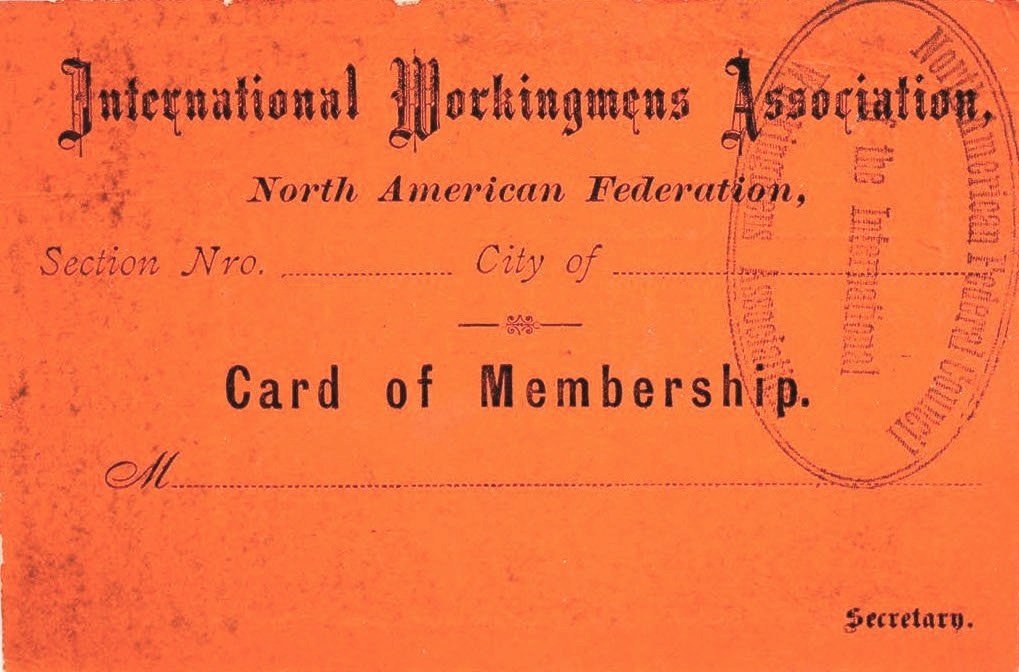
The First International in America: A Cosmopolitan History
At the outbreak of the American Civil War, the Southern attack on free labor was denounced across European labor circles as a step backwards from the aspirations of eighteen-century revolutions. The working men of Britain rallied behind the Union cause, alongside French, German and American reformers. From 1862 onward, British workers engaged in meetings and mass protests to mobilize public opinion against Prime Minister Lord Palmerston’s bellicose plans to support Confederate “independence.” Cooperative reformers founded “Emancipation Clubs” to rally labor’s support for the North, and social democrats wrote furiously in the labor press against what German exile Karl Marx called the “criminal folly” of the ruling classes. Speakers at these packed meetings included abolitionists and Chartists, as well as influential liberals such as John Bright, black Americans like J. Sella Martin and leading Garrisonians Mary & William Craft. The Union Emancipation Society brought together textile workers and abolitionists to lead the political opposition against Southern rebels, at a time when the established British anti-slavery forces failed to do so. This transatlantic solidarity inspired the founding of the International Workingmen’s Association (IWMA) on 28 September 1864. By October 1865, the IWMA had “[given] the American flag the place of honor” at their meetings to celebrate that “Democracy had triumphed, slavery had perished,” and “the republic was saved.” As they understood it, “the flag, which had for been so often insulted by the privileged classes of Europe, will yet proudly wave throughout the world, the emblem of liberty and the hope of the oppressed.”

The Divided Legacy of Democracy: The Transformation of the Liberal Political Tradition in the Nineteenth Century
The political opposition to the Holy Alliance was an essential feature of the liberal tradition in the post-Napoleonic period. In 1815 a pact led by Tsar Alexander I, the “Holy Alliance” of the Austrian, Prussian and Russian empires, combined their imperial, military might against the spread of republican ideas— the “republican menace.” Liberals battled the internationalism of despots through interconnected groups of political thinkers and actors who waged a military and ideological battle against the Vienna settlement of 1815. This “liberal international” was composed of networks of political thinkers and actors working in opposition to the military intervention of the Restoration powers, but the term also applies to their vision of an expansive civil society that superseded national and imperial boundaries.
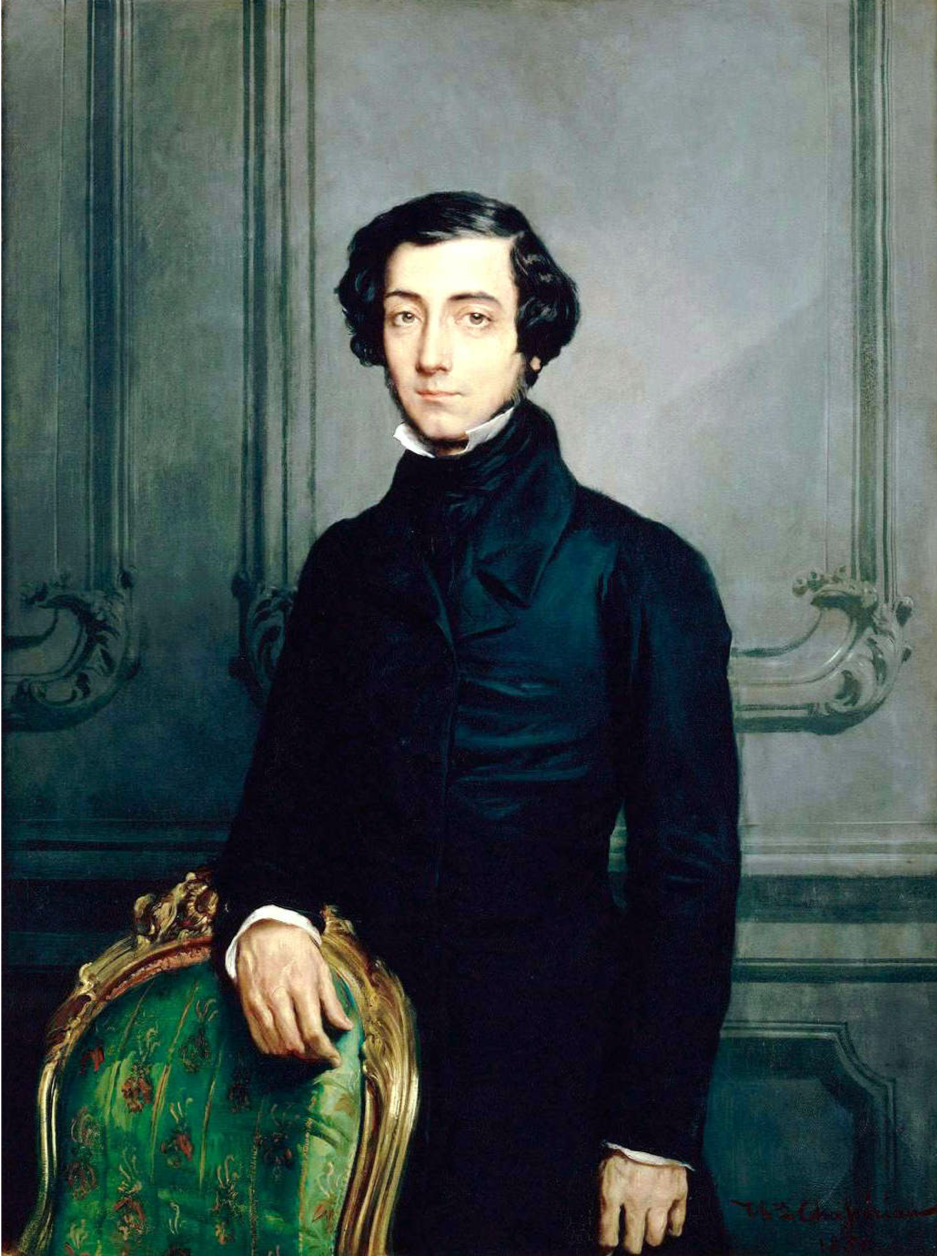
The Problem of Democracy: Radical Political Traditions in the Revolutions of 1848
It has become commonplace over the course of the twentieth century to imagine the political traditions of anarchism and socialism as fundamentally opposed to classical liberal values. From this perspective however, it is impossible to understand why an insurrectionary anarchist like Louis-Auguste Blanqui spoke of the French liberal Benjamin Constant as “one of the firmest upholders of French freedom”; why Karl Marx felt indebted to Adam Smith and John Locke for their conception of civil society; why during 1848 and ’49, the red flag was carried sometimes in opposition to but sometimes as a supplement to the tricolor of French republicans; or why the radical tailors of the 1840s reading Gracchus Babeuf out loud in their Parisian workshops still supported small-property ownership as a fundamental right of all free citizens. What we miss by setting up a strict antinomy between these political traditions are their embedded intellectual histories and their entanglement in the revolutionary history of the nineteenth century. We overlook how these ideas were tested, reconfigured and revised in response to the on-going attempts to transform society. And we do a disservice to intellectual history by treating political ideas as static concepts (as hardened “ideology”), rather than deriving their hermeneutic force from the transformative potential they carried at the time of their articulation.
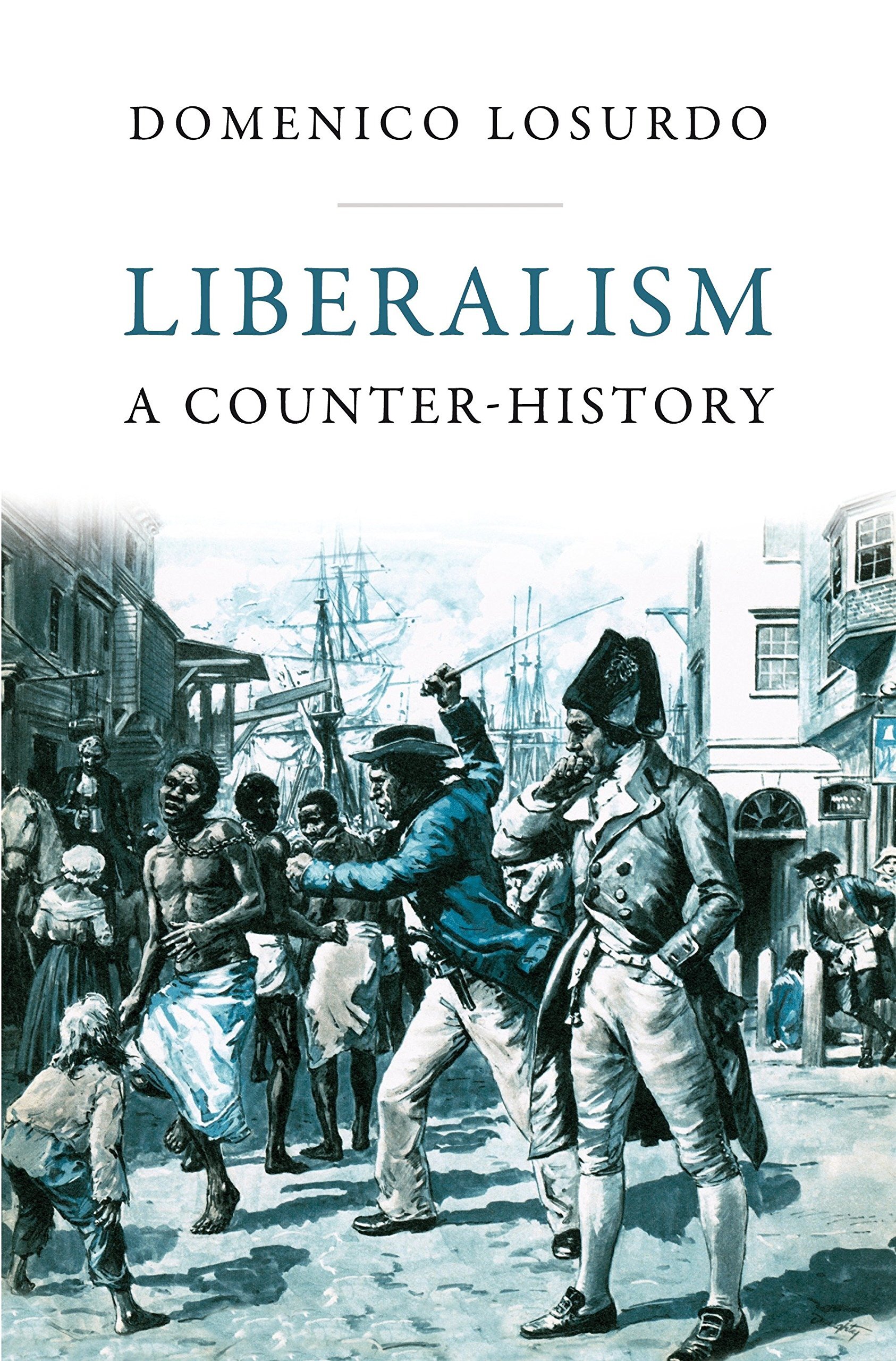
Liberalism and Marx: An interview with Domenico Losurdo
On March 17, 2012, Ross Wolfe and Pamela Nogales of the Platypus Affiliated Society interviewed Domenico Losurdo, the author, most recently, of Liberalism: A Counter-History (2011). What follows is an edited transcript of their conversation.
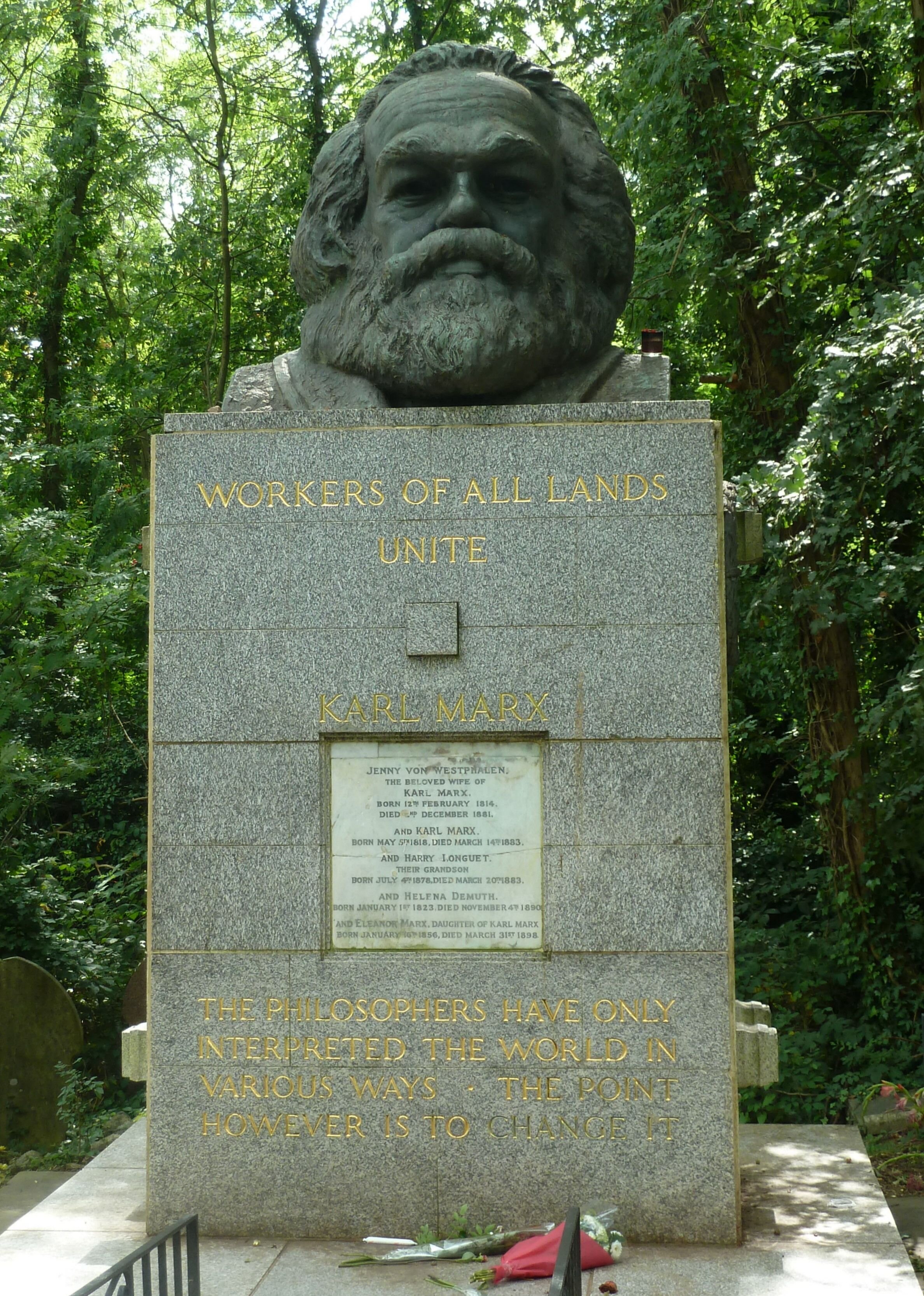
Marx after Marxism: An interview with Moishe Postone
Moishe Postone is Professor of History at the University of Chicago, and his seminal book Time, Labor, and Social Domination: A Reinterpretation of Marx’s Critical Theory investigates Marx’s categories of commodity, labor, and capital, and the saliency of Marx’s critique of capital in the neoliberal context of the present. Rescuing Marx’s categories from intellectual and political obsolescence, Postone brings them to bear on the global transformations of the past three decades. In the following interview, Postone stresses the importance of an analysis of the history of capital for a progressive anti-capitalist Left today.
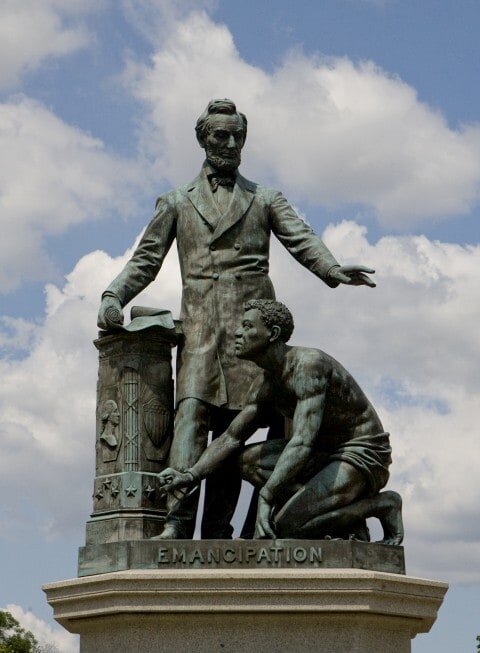
Monumental History
Confederate statues were erected across the South in the early twentieth century, when Southern politicians were revising the history of the Civil War. They aimed to transform this chapter of American history from an emancipatory struggle into a Confederate defense of “states’ rights” led by a valiant race. Unfortunately, this Southern propaganda has survived the twentieth century. On the American citizenship test there remain two “correct” answers to the question, “What caused the Civil War?”: “slavery” and “states’ rights”. Despite this propaganda, every Confederate statue today remains a testament of the slaveholders’ defeat. Each one is a reminder that the Confederacy lost the war. What good we make of the victory of free labor over slavery is yet to be seen. But one thing is certain: nothing good will come out of forgetting the Civil War.
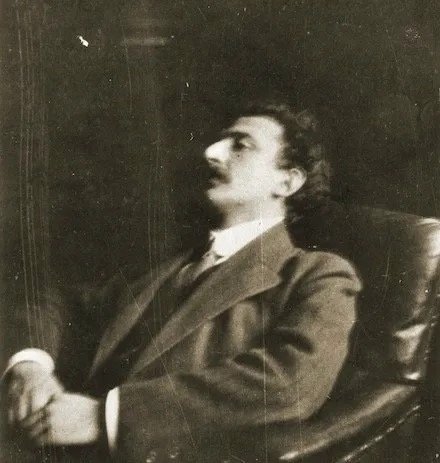
Helplessness without history: Political education after the Millennial Left
What follows is an edited, revised and expanded version of a teach-in given on Moishe Postone's 2006 essay “History and Helplessness” and the origins of Platypus, given on November 9th, 2023, at the University of Chicago.
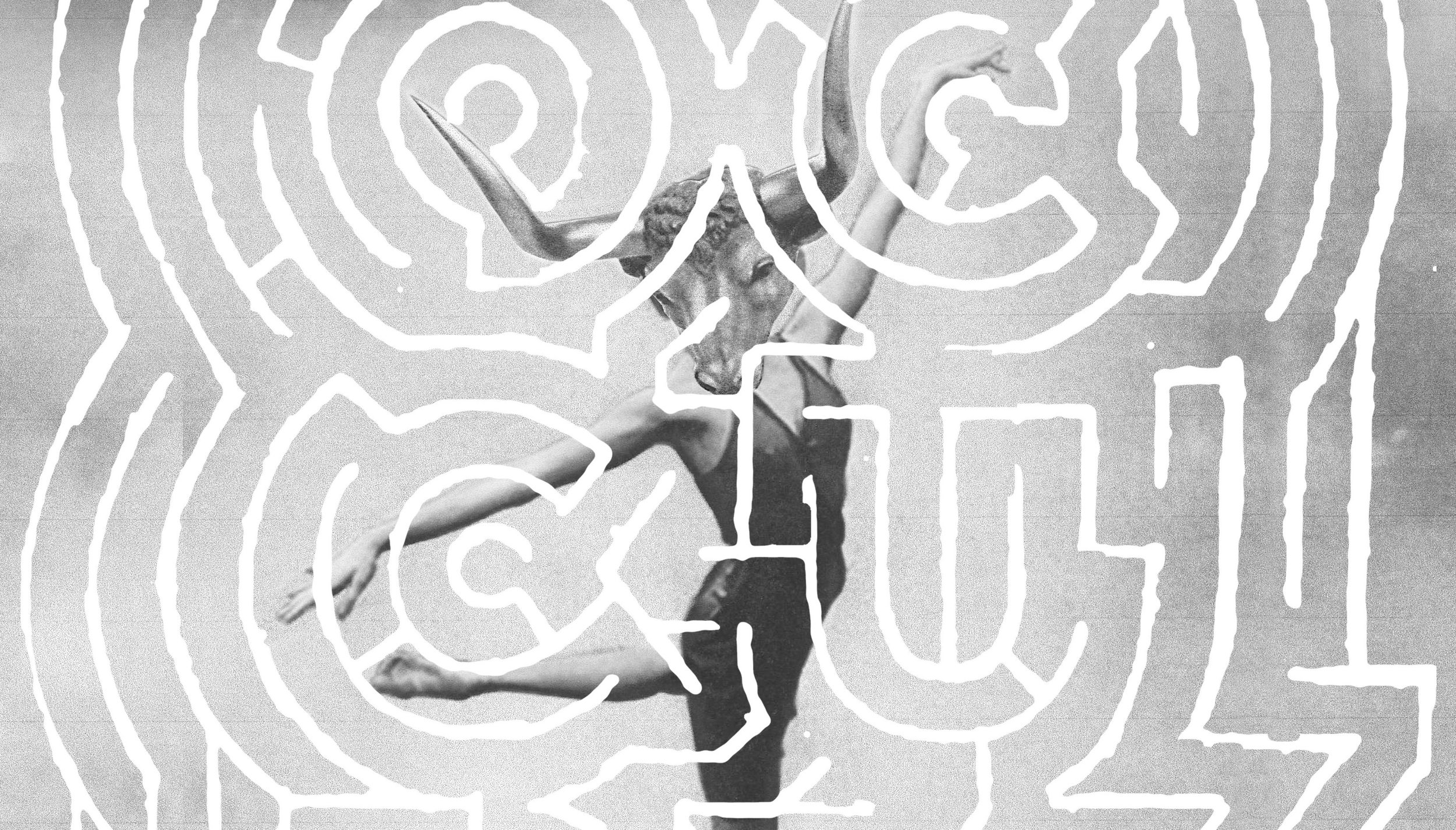
Lessons Learned from the Death of the Millennial Left
Occupy erupted in 2011 after the revolt of the Tea Party, a populist expression of discontent from the Right which provoked a renewal among the Republican Party base. In the shadow of the economic downturn, amidst global austerity protests, the Zuccotti Park occupiers looked to the rebellions in Cairo, Tunis, Athens and London. They were inspired by the forms of organization and mobilization at Tahrir Square and the popular assemblies in Madrid’s Puerta del Sol but directed most of their discontent against the government bailout. After NYC, copycat protests spread to hundreds of cities, on every continent — it was an explosion otherwise unprecedented in my lifetime, a spontaneous expression of popular discontent that cut across the political spectrum.
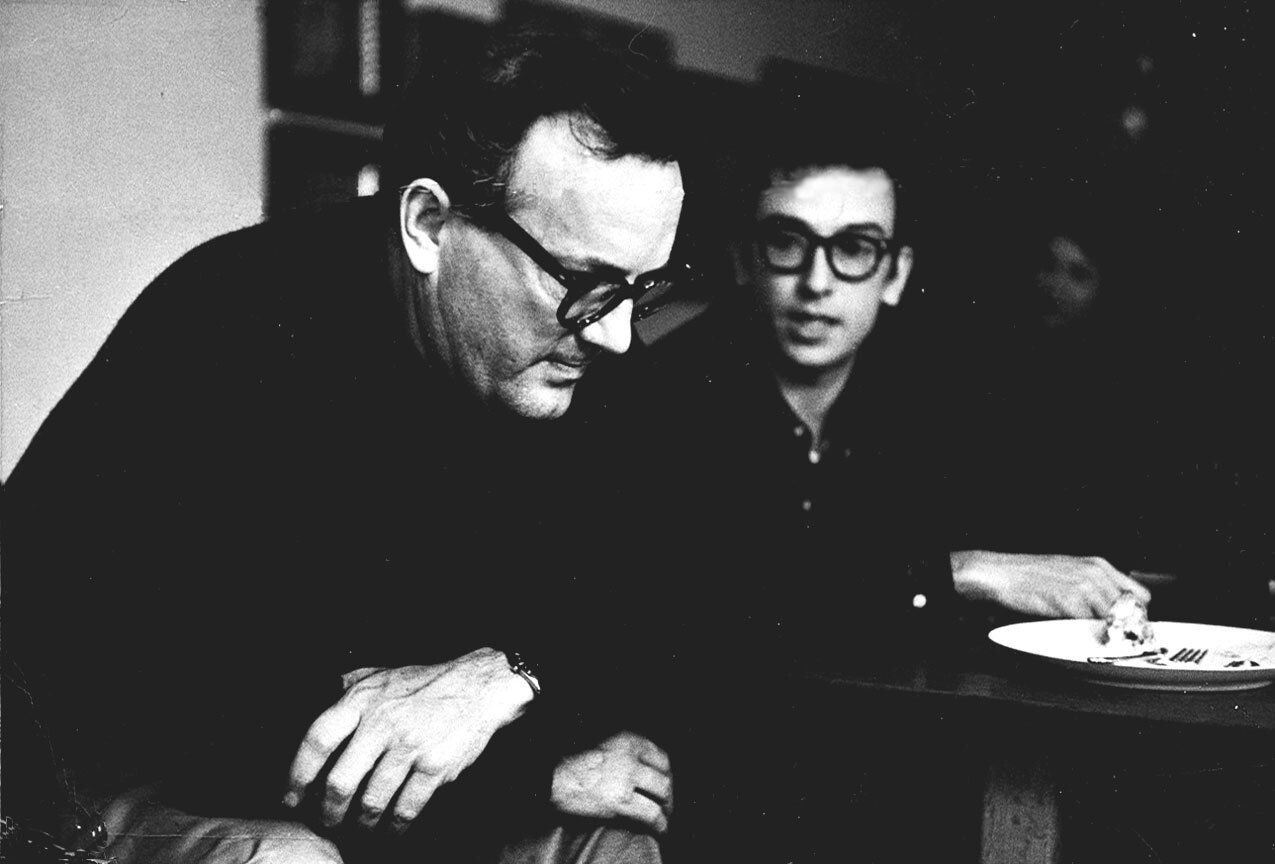
Two Steps Back
Not unlike the late 1950s, students today find most compelling in Marx what among the existing Left is fraught with a great deal of ideological confusion: the possibility of historical transformation. And though we can write and rewrite about the centrality of the eleventh thesis of Feuerbach until pages are worn to a pulp, in truth, we insist on the relevance of this line precisely because society has proven so recalcitrant to change—from the Left. “Crises” are no longer opportunities for political mobilization but just reaffirm how powerless the Left is, even in the face of economic collapse. Presently, the Right is much more effective at organizing in times of social discontent and holds the monopoly on the rhetoric of freedom—once the battle cry of the Left. We have reached an historical impasse of great political consequence. In the face of this degeneration, how do we assess whether or not any self-purported Left either by “carrying on” with the political “struggle” or by returning to “the legacy of socialist thought,” is actually working towards social revolution? Writing amid the sound and fury of the Cold War, Mills was plagued by a sense that both the Right and the Left had become obstacles to transformative possibilities. As a critic of the Left, Mills leaves much to be admired. It is through this framework that his “Letter to the New Left” (1959) can speak to us today.

Slavery & Capitalism: Debates on the Marxist Left
There is much theoretical debate in Marxism about the relationship of slavery to capitalist accumulation. This is often formulated as a debate about stagist theories of history, modernizationist/developmentalist theories, and/or theories of modes of production. Drawing upon a range of our readings, this paper takes up these debates and particularly how they present and configure the problem of value realization in its relationship to the development of global capital in the nineteenth and twentieth centuries.
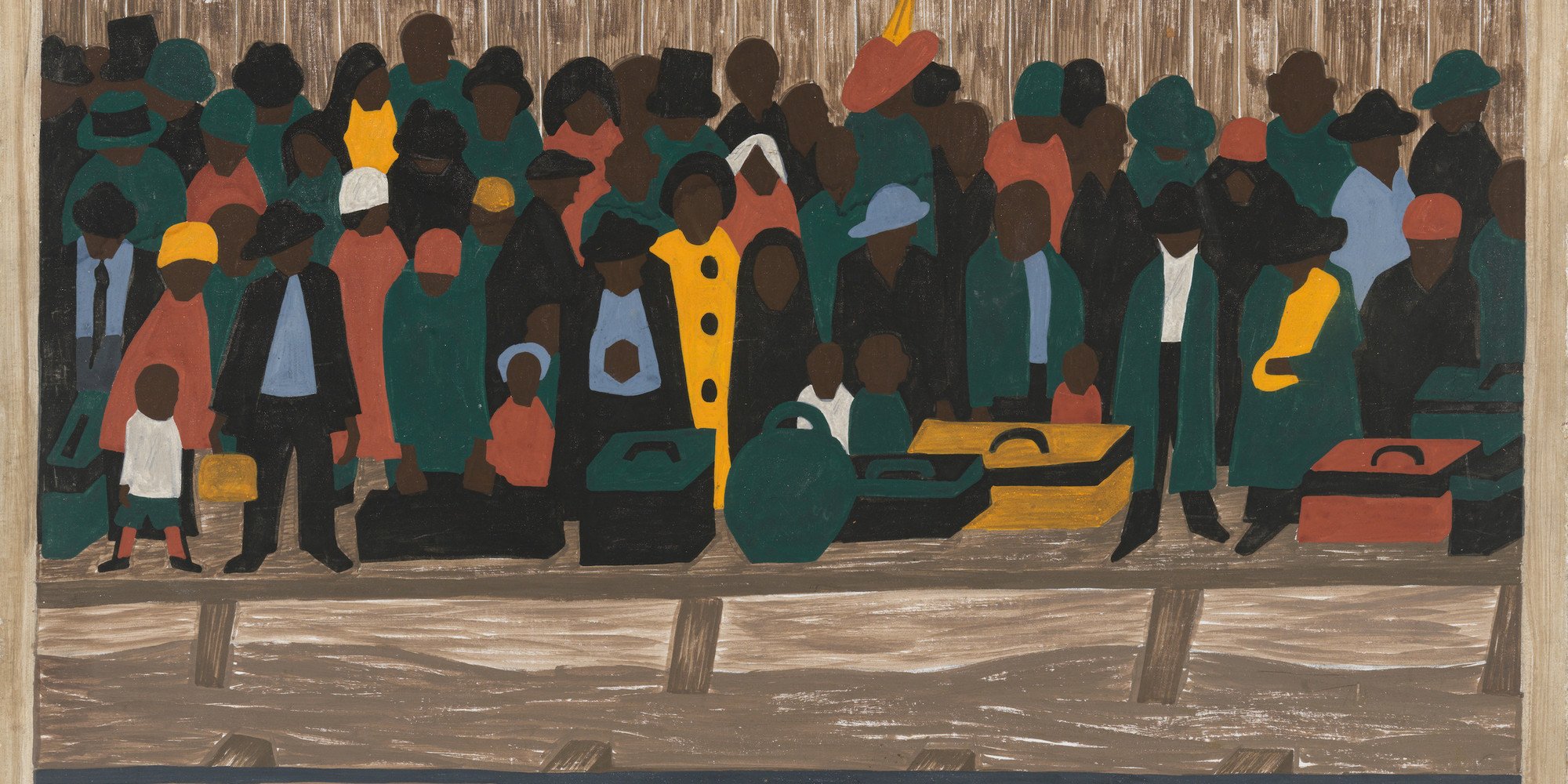
Literature Review: Race & Class in Nineteenth-Century America
Scholarship on this subject is divided on key elements, viz., (1) the rigidity of race and racial identity, (2) whether race is a site for political articulation (and affirmation, i.e., “self-determination”) or an imposed and limiting social division that undermines political agency, and lastly, (3) how race (and a racial political imagination) is an embedded feature of the history of American politics.
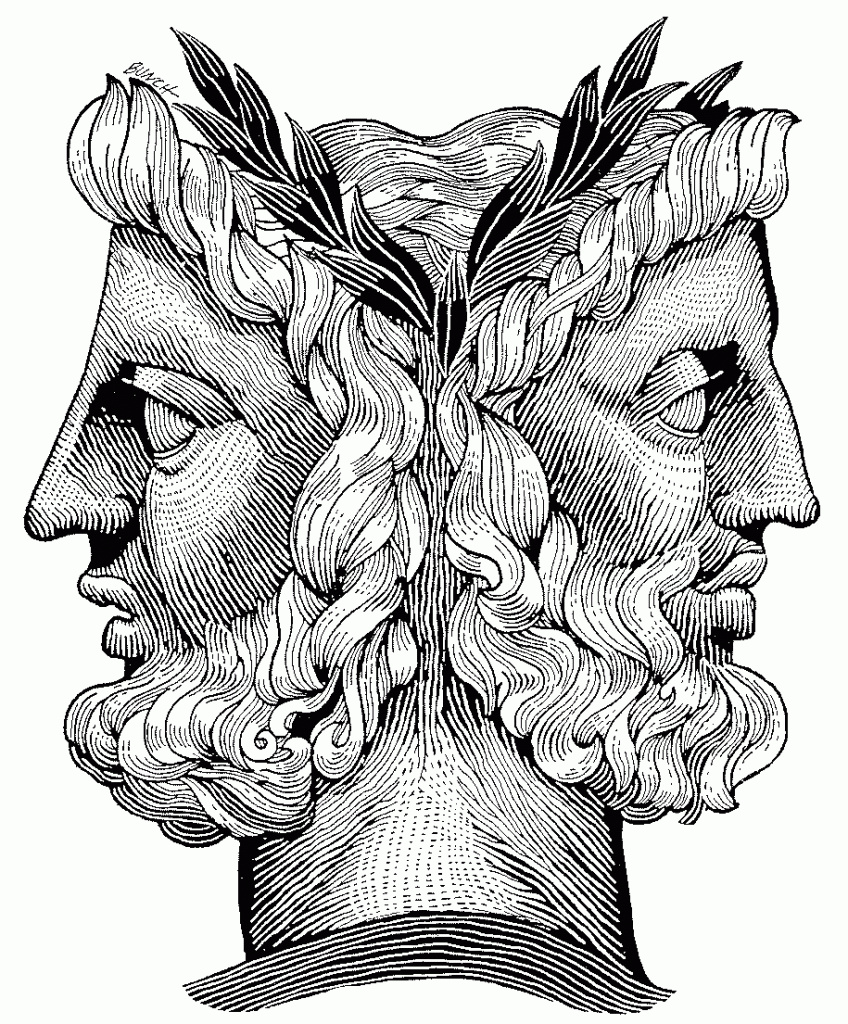
Literature Review: Ideology and the American Revolution
Bernard Bailyn’s The Ideological Origins of the American Revolution inaugurated a turn to intellectual and political historical work on colonial America. His work established that “the pattern of political activity in the colonies was part of a more comprehensive British pattern” and could not be “understood in isolation from that larger system” (Bailyn, Origins of American Politics, ix). The American Revolution was fundamentally an Atlantic Revolution, i.e., a conflict played out across geographical space, but also, importantly, within a broad, continental political tradition (Bailyn’s “Republican political language”). Bailyn used eighteenth-century radical pamphlets and debates printed by the English and American oppositional presses and distributed on both sides of the Atlantic; he showed how opposition in the colonies was vivid with a “Commonwealth imagination” — what J.G.A. Pocock later called the ethos of “Republican civic humanism.” After immersing himself in “the flood of Whig panegyric verse” that poured from the presses from 1700 to 1760, Bailyn located the “triggering convictions” of revolutionaries in “the specific fears and formulations of the radical publicists and opposition politicians of early eighteenth-century England,” those “who carried forward into the age of Walpole the peculiar strain of anti-authoritarianism bred in the upheaval of the English Civil War” (Bailyn, Origins of American Politics,ix-x).
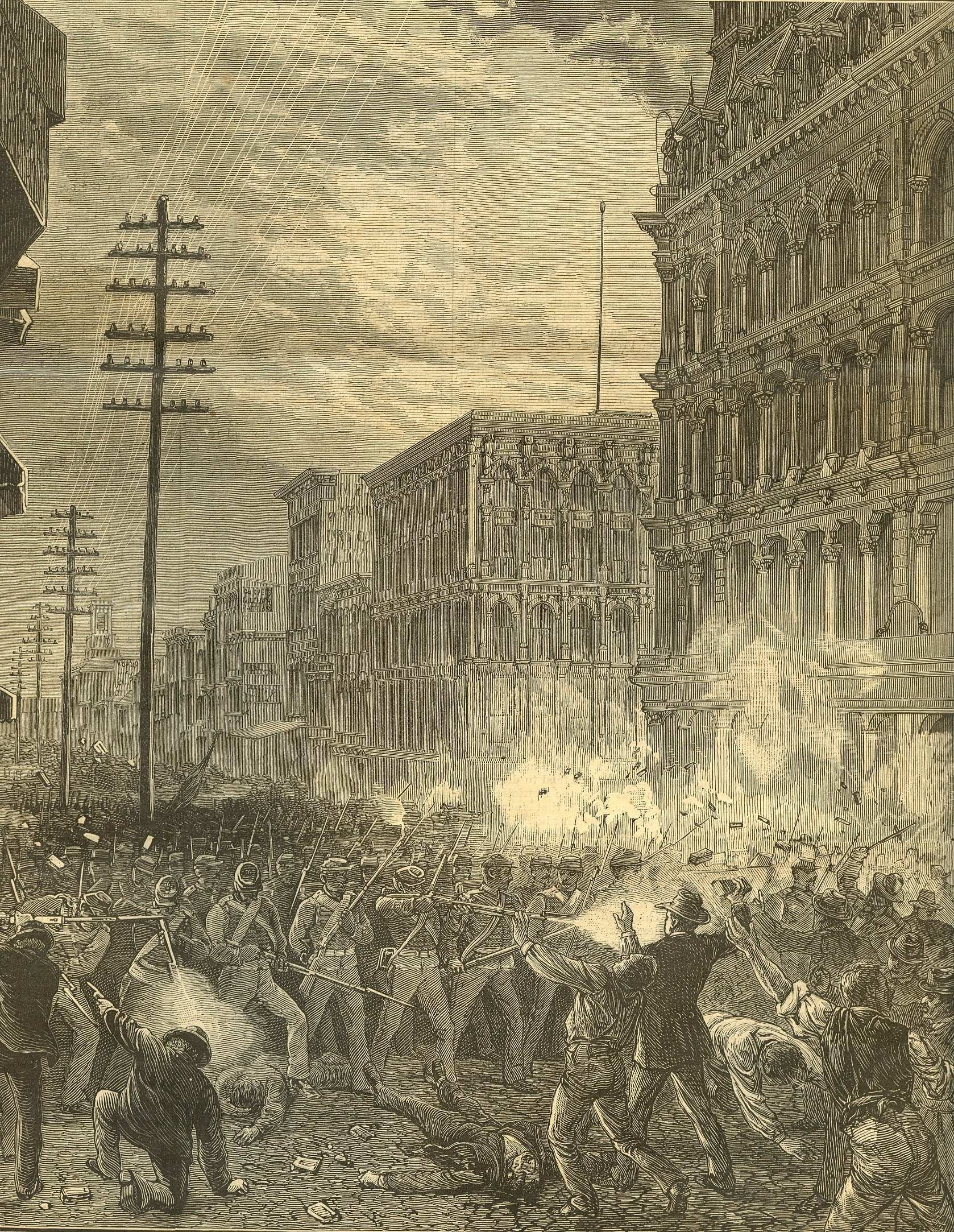
The Reconstruction of the North: The Transformation of Reform Politics in Postbellum America
New liberal reformers after the Civil War reconciled democracy and capital in theory, while arming troops against railroad workers and denouncing black 'red shirts' in South Carolina. What resulted from this transformation of American politics was a moral and ideological order guided by the needs of American corporate capital. While once at the center of antebellum Republican free labor ideology laid a glorification of the producer as protector of freedom, postwar opinion of labor fixated on the dangers of class politics, and insisted on the need to guard democracy from rabble-rousers, even, if needed, by bayonet.
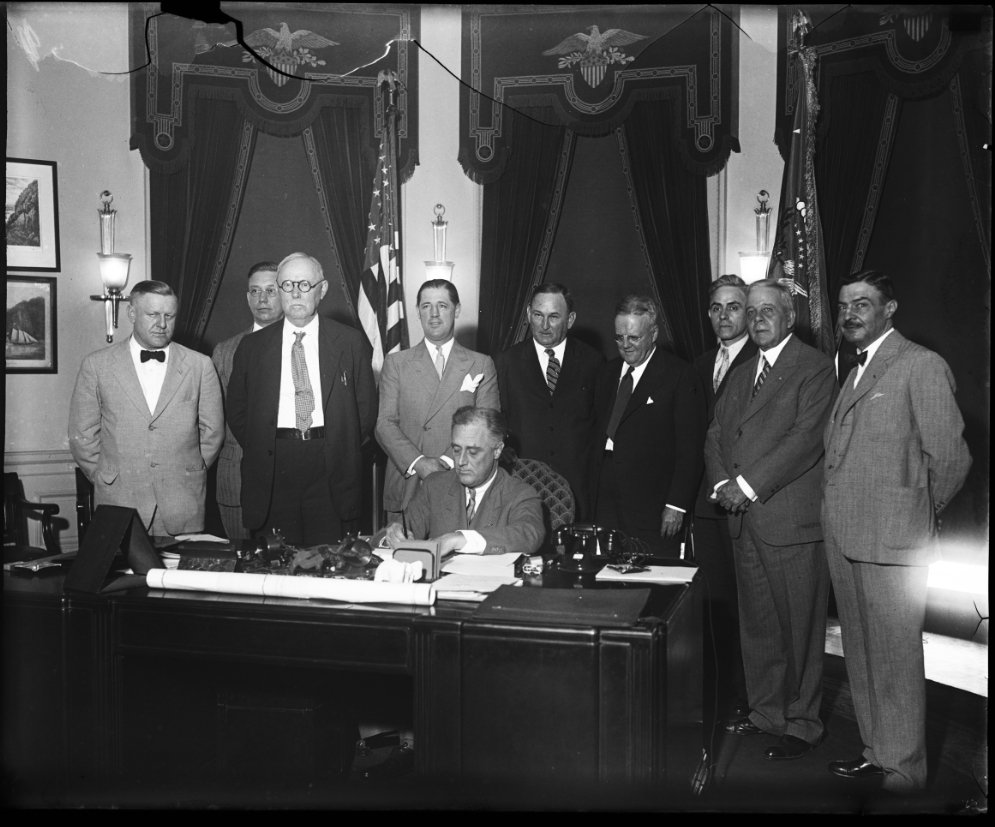
Literature Review: The New Deal and the Transformation of American Liberalism
The vision of the administrative state espoused by post-WWII liberals was shaped primarily by the experience under the New Deal. Historians Alan Brinkley and Lizabeth Cohen present a vision of the 1930s as a time when liberals in the United States looked to the state as a solution to the increasingly accumulation of capital by corporate power. While Brinkley’s approach to the period focuses on the intellectual roots of New Deal policies and their transformation, Cohen attentively describes how Chicago laborers in the interwar years turned to the state and to the Congress of Industrial Organizations (CIO) for support in the years following the Great Depression.
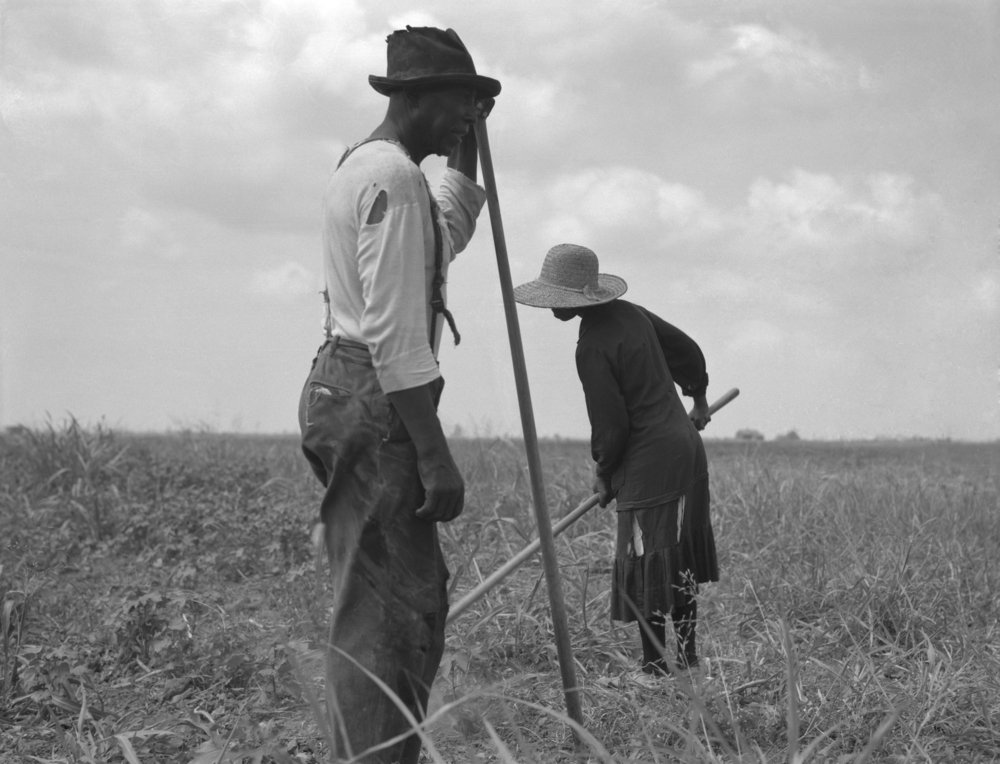
Literature Review: American Sharecropping
The abolition of illiberal commercial relations in the American South gave rise to an arrangement in which labor was not quite free, nor entirely unfree. Due to its seemingly anachronistic features, American sharecropping drew comparisons to feudal arrangements inWestern Europe. This analysis however, sparked significant debate about the nature of agricultural production in the American South as embedded within the context of the global expansion of industry during the nineteenth century, i.e., a time in which Southern landowners hired sharecroppers in order to produce for the market. These considerations as well as the specific historical conditions present in post-emancipation America make the study of sharecropping a peculiar, and potentially fruitful, standpoint from which to investigate the transformation of agriculture under capitalism.